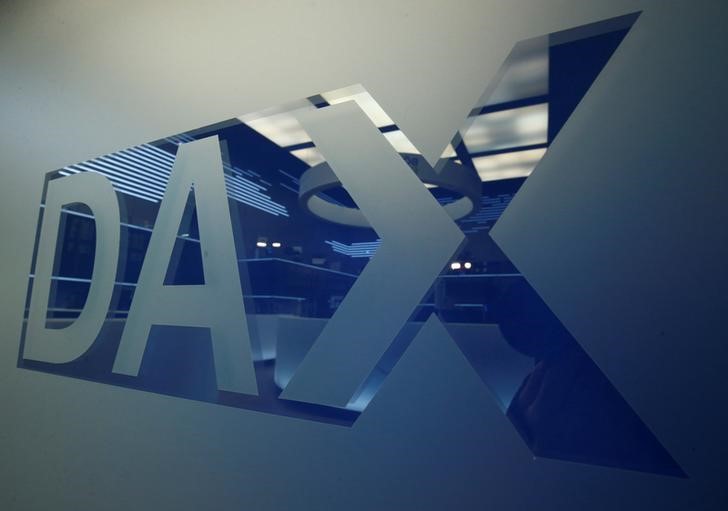This post was originally published on this site
https://i-invdn-com.investing.com/news/LYNXNPEE1D1PN_M.jpg
At 03:05 ET (08:05 GMT), the DAX index in Germany traded largely unchanged, the CAC 40 in France traded down 0.1% and the FTSE 100 in the U.K. fell 0.3%.
Data released earlier Friday showed that the German economy shrank slightly in the third quarter compared with the previous three months, falling 0.1% on the quarter, confirming a first estimate, published in late October.
“After the weak economic development seen in the first half of 2023, the German economy began the second half of the year with a slight drop in performance,” said Ruth Brand, president of the German statistics office.
Recent data has pointed to the possibility of a mild recession in the eurozone’s dominant economy by the end of this year, adding a degree of urgency to the debate over what the European Central Bank does next with its interest rates.
This ECB snapped an unprecedented streak of 10 consecutive rate hikes at its October meeting, holding interest rates unchanged as the policy makers digested incoming economic data.
The European Central Bank must resist any temptation to cut interest rates early as the most difficult part of fighting off the recent inflation surge could still be ahead, Bundesbank President Joachim Nagel said on Thursday.
There’s little else due on the European data slate Friday, apart from the German lfo business climate data for November, which could see a slight pickup in confidence from a low ebb.
On a more positive note, Israel and Hamas are set to start a four-day truce today with the release of a first group of 13 Israeli women and child hostages expected later in the day.
In the corporate sector, activity is likely to be limited with a lot of focus on Black Friday sales in the U.S., as a guide for how the important holiday season proceeds for the country’s major retailers.
In Europe, a lot of focus will be on Barclays (LON:BARC), after Reuters reported that the British bank is working on plans to save as much as £1 billion pounds (£1 = $1.0910), which could involve cutting as many as 2,000 jobs, mainly in its back office.
Oil prices traded in a mixed fashion Friday after the previous session’s U.S. holiday, but remained on course for the first positive week in five ahead of next week’s OPEC+ meeting to discuss future output levels.
By 03:05 ET, the U.S. crude futures traded 0.6% lower at $76.63 a barrel, while the Brent contract climbed 0.3% to $81.62 a barrel. Both contracts were up around 1% for the week, gaining after an extended rout brought prices to near four-month lows.
Traders still expect the Organization of the Petroleum Exporting Countries and allies, including Russia, a group known as OPEC+, to agree to more supply cuts to boost prices.
The OPEC+ meeting was delayed to Nov. 30, having originally been scheduled for Sunday, prompting speculation of disagreements between member countries over planned production cuts.
Bigger gains for the week were also stymied by data showing a substantially bigger-than-expected increase in U.S. inventories, with U.S. production remaining close to record highs.
Additionally, gold futures rose 0.1% to $1,994.30/oz, while EUR/USD traded 0.1% higher at 1.0911.

